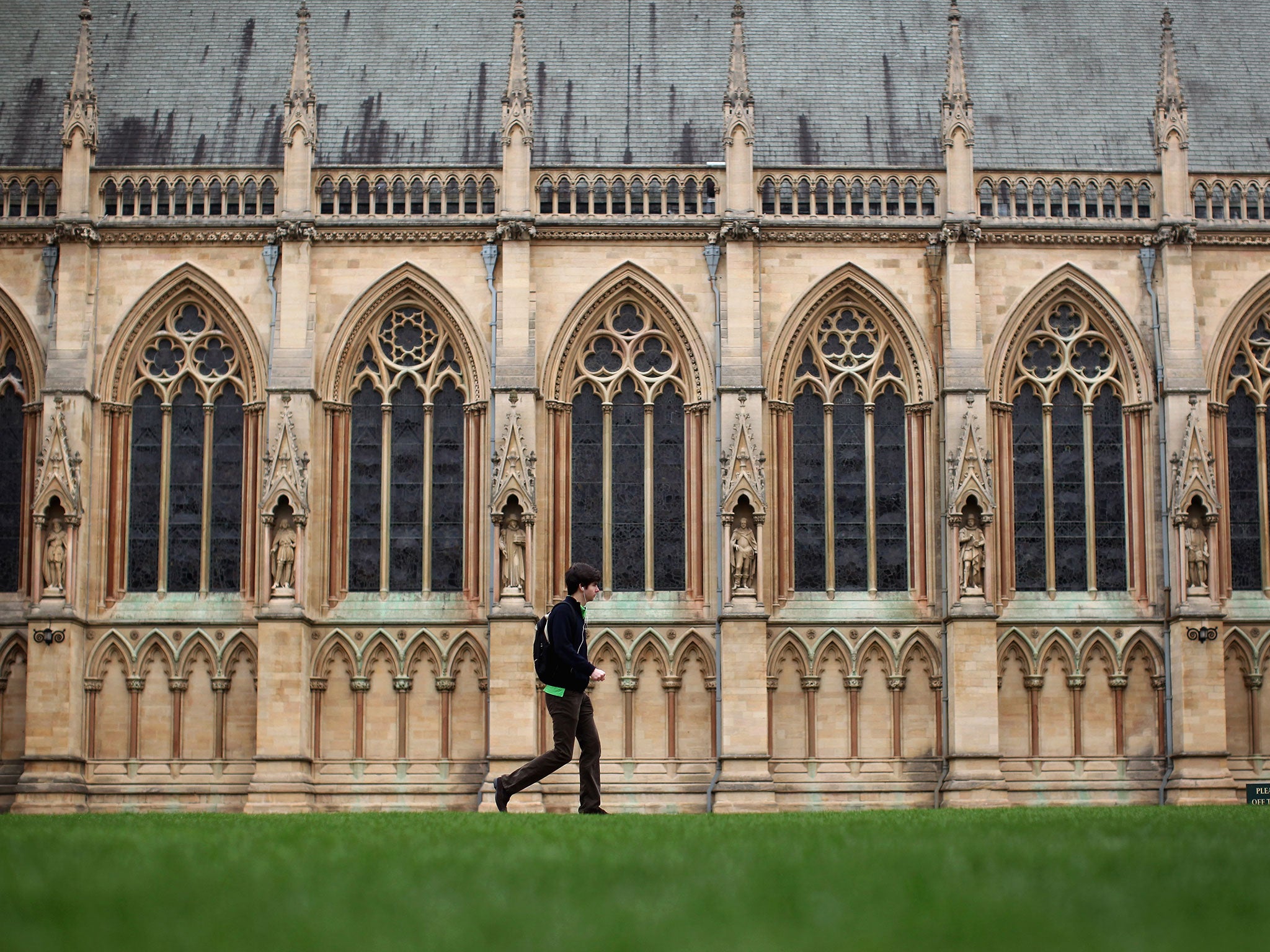Gifted pupils from deprived areas to attend regular seminars at top universities
Around 400 of the most “highly able” 11- to 14-year-olds at non-selective state schools will be picked

Children as young as 11 are set to be offered classes at universities including Cambridge in a bid to help the brightest comprehensive pupils from poorer areas secure places at top institutions.
Around 400 of the most “highly able” 11- to 14-year-olds at non-selective state schools will be chosen to attend regular academic seminars at four of the country’s most in-demand universities.
All those chosen will be from low and middle-income families, attending schools serving disadvantaged communities with little history of sending pupils to such universities.
The scheme is being launched by the education charity the Sutton Trust, which campaigns for equal access to education for all, in the wake of Government funding for “gifted and talented” programmes to stretch the brightest pupils being discontinued three years ago.
The children, who will attend six days of seminars at Cambridge, Nottingham, University College London and Warwick, will all be from the top 10 per cent of the ability range.
Cambridge will search for the brightest pupils concentrated on coastal towns in East Anglia – following chief school inspector Sir Michael Wilshaw’s claims that the poorest children in rural and coastal areas are more likely to be disadvantaged nowadays from those in the inner city.
Sir Peter Lampl, the millionaire philanthropist who chairs the trust, said: “The trust has long worked with bright students in the later years of secondary school and in the sixth-form.
“But if we want more students from low and middle-income homes to be in the running for university places when they are 18, we need to support them much earlier on, so that they continue to do well in school, have high aspirations for their futures and make the right educational choices.”
Sir Peter said the scheme was intended “to show the way forward, increasing social mobility through enhanced opportunities for bright young students”. However, he urged the Government to mount a national programme “that highly able state school pupils across the country can access”.
Children who took part in a pilot of the project at UCL took part in six “discovery days” at the university covering a range of topics from “Ancient Worlds” to “Mission to Mars”.
They also attended a three-day residential seminar on the theme of London: Past, Present and Future. A mentor from the university was assigned to each student to help them with academic projects and general advice.
One of the students on the pilot, Shan Hama, from Fulham Girls’ School in west London, said of the scheme: “I had a blast… I especially enjoyed the lectures as I now have more experience of university life. I feel more educated.”
The launch of the scheme today coincides with a YouGov poll showing more than 80 per cent of parents and teachers believe it is important schools provide extra programmes for their most able pupils.
Join our commenting forum
Join thought-provoking conversations, follow other Independent readers and see their replies
Comments
Bookmark popover
Removed from bookmarks